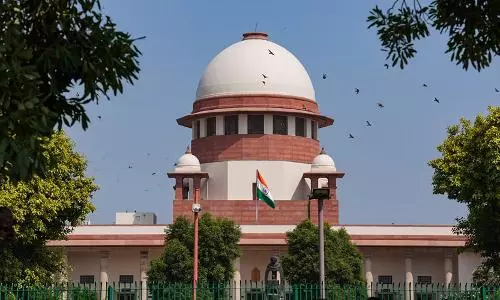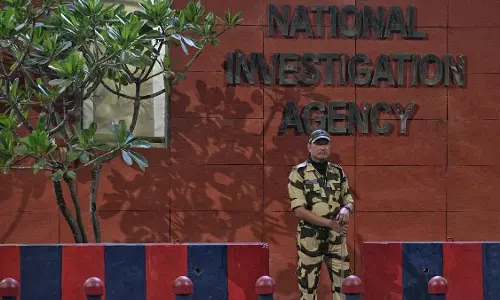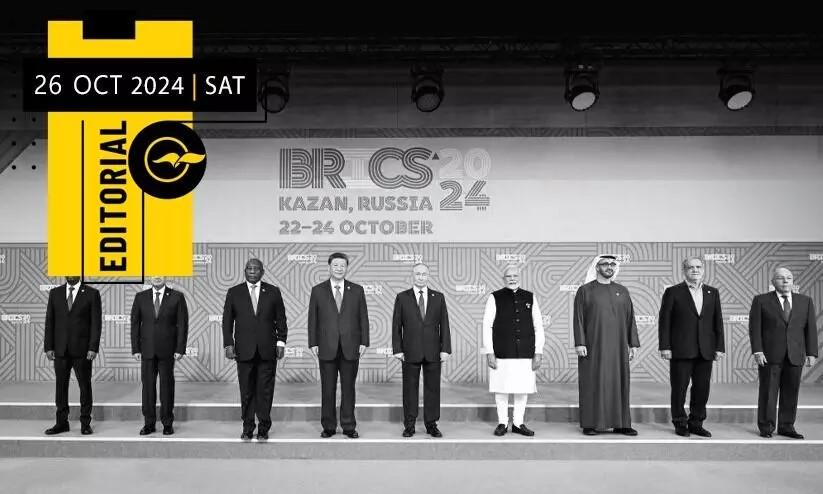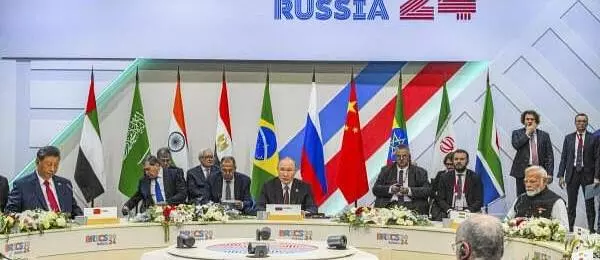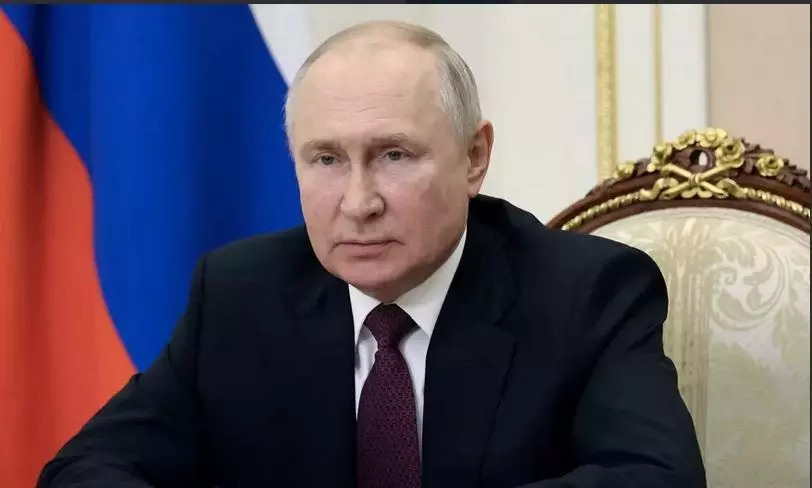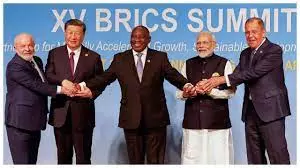
A new BRICS in Kazan
text_fieldsThe 16th BRICS Summit, which concluded in Kazan, Russia, can undoubtedly be considered a resounding success, standing in contrast to previous editions. This summit also marked the largest gathering held in Russia since the Ukraine war began in 2022. Through this event, Russia and President Vladimir Putin successfully countered Western assertions that Russia had been isolated in the region following the war - a key diplomatic victory for them. Furthermore, the Kazan summit served as a declaration of a new power emerging in the 'Global South,' centred around BRICS. The summit's theme of 'strengthening multilateralism for global development and security' has been largely fulfilled. The active participation of leaders from nine member countries and the bilateral discussions between influential members such as India and China, which have paved the way for solutions to long-standing issues, are noteworthy achievements. The summit has significantly contributed to building trust and understanding among member countries. Additionally, the attendance of leaders from 30 countries, beyond the member nations, was seen as a shock to the United States and European powers. The presence of leaders like Palestinian President Mahmoud Abbas and Turkish President Recep Tayyip Erdoğan is regarded by some as indicative of new shifts in global politics. The summit's expressions of solidarity with Gaza and Lebanon further support this view. In short, despite some differences in the fundamental positions advocated by Russia and China, the message from Kazan is generally one of expectations.
It was on the sidelines of the G8 summit in South Africa in 2006 that the idea for a new bloc was conceived at an informal meeting of representatives from Brazil, Russia, India, and China. Foreign ministers from these countries held another meeting that same year on the sidelines of the UN General Assembly, further developing the concept into an organization. In 2009, the first formal summit was held in Russia, and with the inclusion of South Africa, the organization took its current form as 'BRICS', an acronym formed from the first letters of the English names of the five countries. For over a decade, these countries have cooperated in various fields, though differences have also arisen on certain issues. Nevertheless, this bloc has managed, albeit to a limited extent, to challenge the dominance of the US, the European Union, NATO, the United Nations, and the World Bank in the global political and economic arena. This was possible despite divergent opinions and occasionally opposing political approaches among the member countries.
Last year, discussions began to expand the bloc, leading to invitations for Argentina, Ethiopia, Egypt, Iran, the UAE, and Saudi Arabia to join BRICS. Of these, only Argentina declined. Although Saudi Arabia accepted the invitation, it has not yet formally joined. Now, countries like Turkiye have also expressed their willingness to work with BRICS. As Turkiye and others aspire to join a new power bloc centred on the Global South, and driven by frustrations over the protracted wait for European Union membership, the BRICS leadership is increasingly adopting a stance against the US and Israel in the West Asian conflict. It is noteworthy that this bloc currently represents half of the world's population and contributes a third of the global GDP. In other words, the organization has the potential to influence global economic transactions significantly. In this context, the idea of a banking system similar to the World Bank and IMF, but under BRICS oversight, becomes particularly relevant, with a high likelihood of it materialising in the coming years.
For India, this summit was of critical importance and can be seen as having been used effectively. Among the most significant developments is the promising shift in diplomatic relations with China. The meeting between Prime Minister Narendra Modi and Chinese President Xi Jinping signals a return to normalcy in India-China relations. The two leaders have agreed to continue discussions to resolve the border dispute. Both have welcomed the agreement to resume military patrolling along the Line of Actual Control in eastern Ladakh, alongside the withdrawal of troops and announced that further discussions will follow. This marks their first meeting in five years. These moves, driven by the realisation that continued hostility is of no benefit to either side, are promising and crucial within the evolving geopolitical landscape.




